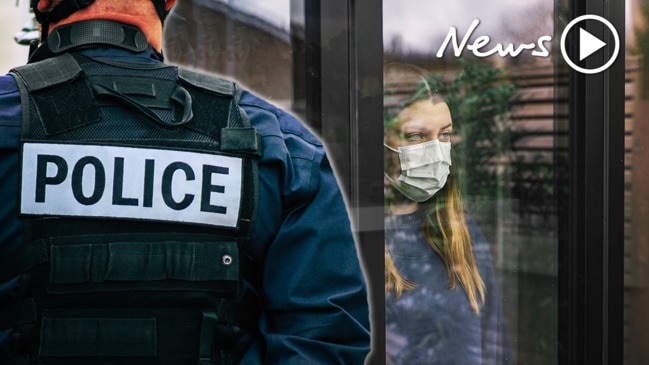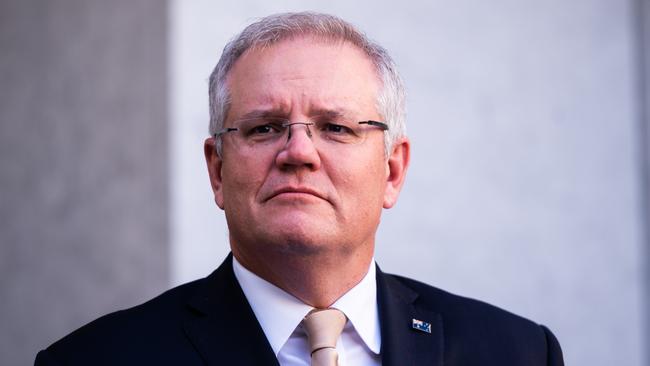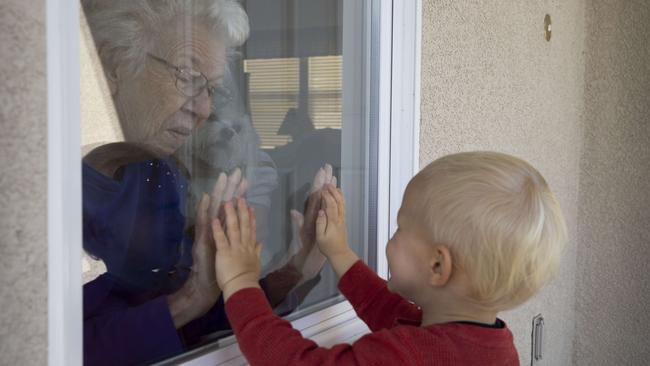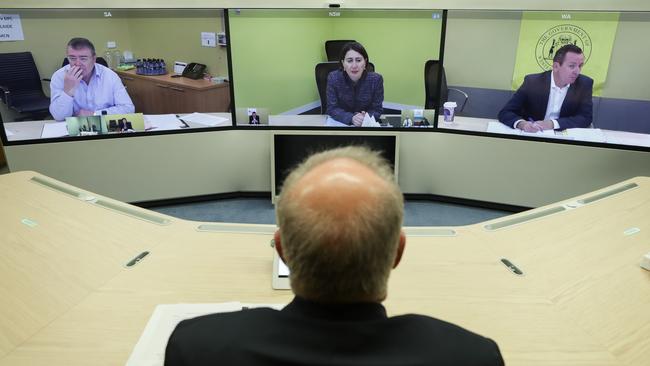What leaving COVID-19 isolation will do to our mental health
As the country prepares to return to some form of normalcy in the coming weeks, we must understand that not everyone is ready for it, or excited at the prospect, writes Mark Carter.

Rendezview
Don't miss out on the headlines from Rendezview. Followed categories will be added to My News.
No conversation that includes the word ‘isolation’ is ever pleasant; something that millions of Australians have discovered as we battle this pandemic.
Humans are not creatures that evolved to be alone and isolated. We are herd animals who discovered millennia ago that there is safety in numbers.
Once isolated we do not deal with it well; it is why isolation is used as a punishment in the corrections system, as even the most hardened crook needs human connection.
What isolation has done for us as people is to highlight what so many Australian’s go through every virus-free day.
For some, myself included, self-isolation in some capacity is business as usual. For me, there are several times each year where I feel a little fidgety and retreat into selected social distancing.
Christmas, New Year, any major celebratory holiday or even my own birthday. I tend to want nothing more than to crawl into my cave and hide.
Through my work, I have learnt to manage my downward spirals, but it is a constant battle. I feel for those who carry the weight on a more permanent basis.
The Harvard Study of Adult Development, which has run for over 80 years, found the secret to a long and happy life is love.

It turns out that feeling like you are in a securely attached relationship, where you can count on the other person, protects our brains and our bodies.
This might explain why there are some days leading up to events or celebrations where some among us, who are not in a relationship, may feel like we are on the verge of losing our mind as we spiral into a negative cycle.
A little like a virus associated with a pandemic, the vitriolic headspace of self-loathing or self-isolation does not much care which among us becomes its host. Which is why some people, having gone through the contrast and heartache in life, or a long path of personal growth, learn a simple truth and come to the full understanding, appreciation and acceptance that happiness must first and foremost be an inside job. For all of us.
We can’t make our joy the responsibility of another – especially where one has not yet done the emotional work to realise that people in a relationship are still responsible for their own happiness.
It is when you add all these factors together that you can understand why people some hold back on opinions or go into hibernation mode.
Even those who seem confident and comfortable in their own skin can be the victims of loneliness.

One thing that the isolation COVID-19 has brought is to give us all an insight into what it feels like to feel trapped in our homes. To have an idea of the negative impact of isolation and loneliness can have on our own health and wellbeing.
In this digital age of self-obsession, rapid consumption, hyper connection and social media overload, the pool of people who truly know how to listen without judgment is not as large as one thinks.
There are also times where prior trust has been utterly violated so confiding in others becomes a hurdle in itself.
Vulnerability takes constant work and trust. Especially when faced with a lack of evidence that to be vulnerable will mitigate any risk of feeling worse.
The younger we are the more at risk we are to these feelings dominating our life as we are still developing the skills to process our emotions appropriately.
As people, we are not designed to be islands. We need love and want to feel cared for without having to ask for it.
On Friday, Prime Minister Scott Morrison announced his government’s three-step plan to see Australia gradually move back into the world, and a state of relative ‘normalcy.’

As we prepare to head back into the community and many prepare to whine about how shocking being locked up has been, stop and think of those you know who live regularly in self-selected ‘iso’, and what these changes to restrictions may mean for them and how they are coping.
Instead of a whine, why not engage in a deeper conversation with someone who lives in your family or circle of friends about how they found the experience? The moment you give a little patience, a little more attention and show you truly are present, you give the doors of conversation an opportunity to open.
Social isolation has been a great opportunity for us to learn a little more about ourselves and the importance of deeper connection with others.
For those who really want to help themselves and others navigate from isolation, then why not start with the basics of connection by being fully present, letting people talk and taking the opportunity to listen more intently ourselves.
Loneliness is tough and maybe through this experience many more of us now have a greater understanding of what it is to be lonely and can make an effort to be there post-isolation for those who need a hand to connect with the world around them.
Mark Carter is an author, speaker and an expert in human behaviour.
Originally published as What leaving COVID-19 isolation will do to our mental health
